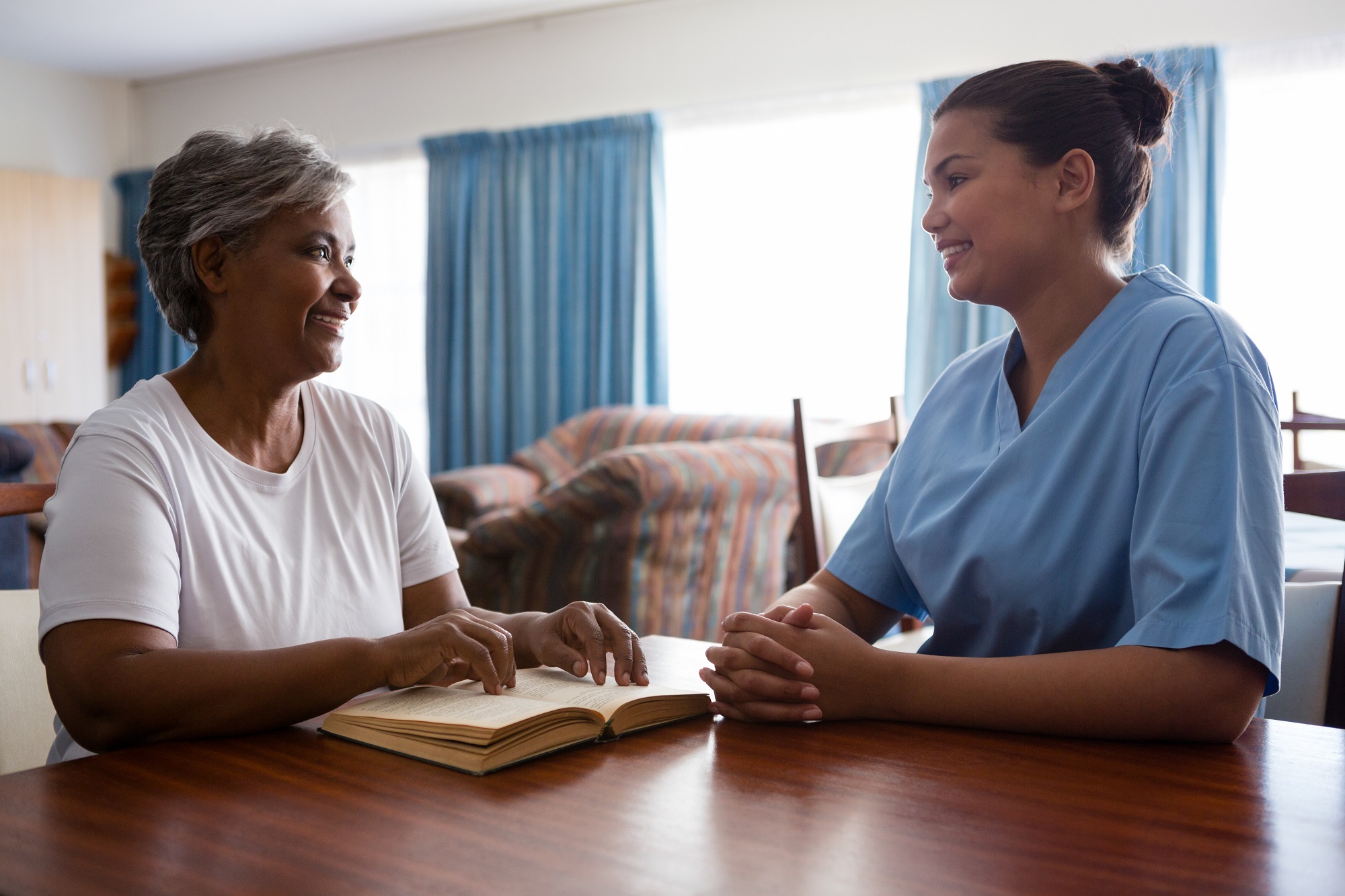
How to Maintain Your Elderly Loved One’s Autonomy
May 5, 2023How to Maintain Your Elderly Loved One’s Autonomy
There comes a point in many individuals’ lives where they have to provide their elderly parent care. For some, this need could arise because their parent has grown forgetful. For others, it could be a result of physical limitations that make completing one’s personal care tasks impossible.
Whatever the reason is, when caring for one’s elderly loved one many develop the urge to completely take over. This is without any malice—in fact, it is probably an attempt to make their life easier. However, this strips your elderly loved one of their independence, and this loss of autonomy is dejecting. Don’t let them lose that. Properly knowing how to maintain your elderly loved one’s autonomy doesn’t have to come at the cost of their care.
Talk with your loved one about what responsibilities they can maintain
As briefly mentioned above, just because your family member needs help to continue living at home, it doesn’t mean they need help with everything. Before you start offering care, sit down with your loved one to discuss what exactly they need help with. Once you’ve determined those responsibilities, try not to stray from them. Take care of those set things, and let your loved one handle everything else.
Every so often, you’ll want to speak with your loved one to reevaluate these responsibilities. They’ll likely need more help as time goes by, and that is fine. It is better to assume these tasks gradually than to take them for your loved one all at once.
Give them daily tasks or chores
Chores may not exactly be thrilling activities, but they help imbue a sense of purpose in your elderly loved one. Giving your elderly loved one something to keep track of on a daily basis—be it washing the dishes or watering plants—will help them feel like active participants in their own lives. Vary these responsibilities every now and again so your loved one doesn’t feel like they’ve fallen into a rut.
Set up a schedule
In addition to creating these tasks, your loved one would also benefit from having a daily or weekly schedule to structure their time with. Structure is key to helping your loved one feel they are purposefully moving about their life. So, at the beginning of each week, sit down with them to record everything that needs to be done, including upcoming appointments, engagements, and anything else.
It’s also important you cultivate many opportunities for your loved one to be social. Whether this means setting up regular lunches with family, helping them stay in touch with friends, or taking them to club meetings, these opportunities will help your loved one feel fulfilled in their daily life.
Get help from an at-home caregiver
As your elderly loved one requires more support to remain at home, you may find yourself overwhelmed by the workload. If that is the case, consider hiring the help of an at-home caregiver. These professionals provide assistance with all the non-medical activities of daily living your loved one requires, including personal care and meal preparation.
For 30 years, Home Care Powered by AUAF has been one of the leading providers of home care in the Chicago area. We would be happy to help you and your loved one. For more information on our services, give us a call at 773-274-9262.
Articles:
-
How to Use FaceTime: a Senior’s Guide
March 20th, 2024 -
The Best Organic Cleaning Products for Caregivers
March 19th, 2024 -
Celebrating St. Patrick’s Day with Seniors
March 14th, 2024 -
Intellectual Activities for Seniors to Keep their Brains Stimulated
March 13th, 2024 -
Tips for Communicating with Seniors with Hearing Loss
March 12th, 2024 -
How to Learn a New Language as an Older Adult
March 7th, 2024 -
Foods that Support Bone Health in Seniors
March 6th, 2024 -
A Note to Our Staff for Caregiver Appreciation Day
March 1st, 2024 -
The Importance of a Senior/Caregiver Bond
February 21st, 2024 -
Recreational Sports as Fitness for Seniors
February 27th, 2024 -
Exploring the Wonders of Reminiscence Therapy
February 15th, 2024 -
Staying Educated on Alzheimer’s Disease and Dementia Care
February 14th, 2024
Call Now! 773.274.9262






